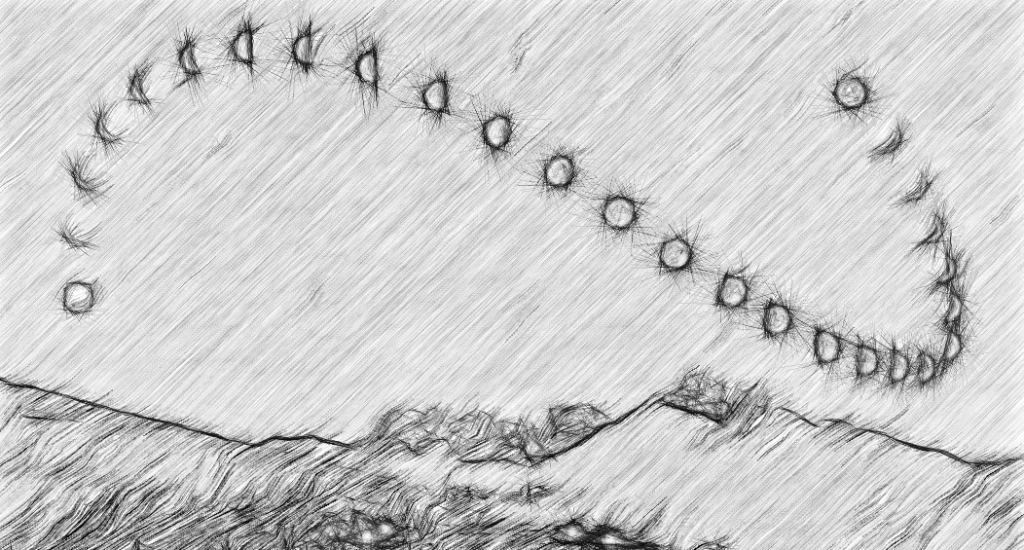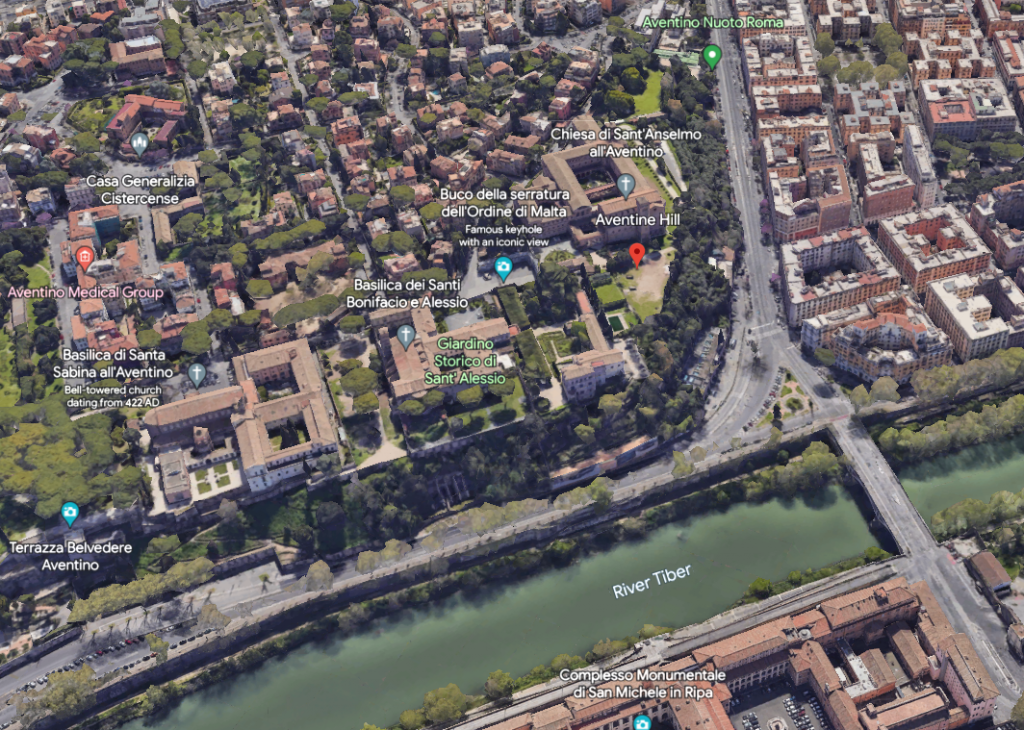
The Moon rules the months: this month’s span ends
With the worship of the Moon on the Aventine Hill.
Fasti by Ovid
The Aventine Hill is one of the seven hills of Rome, named after a mythical King Aventinus. It is the hill upon which Hercules pastured his cattle. According to Virgil in his Aeneid, the monstrous Cacus lived in a cave on a rocky slope near the River Tiber, and stole Hercules cattle. So, Hercules killed him. The worship of Minerva also took place on the Hill. You can take a Google Earth fly past if you follow this link – also some nice photos, and a link to Wikipedia.

The Hill is famous in the mythology of Rome because it is associated with Romulus. He and his twin Brother Remus, were born to the vestal virgin, Rhea Silvia, in the pre-Roman City of Alba Longa, not far away. Rhea was the daughter of former King Numitor, and in her sacred grove she was seduced by the God Mars, and gave birth to the twin boys. They had to be hidden from the wrath of their Granduncle, who had usurped the throne from their Grandfather. The boys were saved by the River God Tiberinus and then by being suckled by a Wolf in a cave called the Lupercal, which is/was at the foot of the Palatine Hill in Rome.
When they grew up, they helped their Grandfather reclaim the throne (being the children of the War God they were obviously excellent at the art of war). They decided to found their own City, but they could not decide upon which hill to build it or who to name it after (accounts vary!). Remus favoured the Palatine, Romulus the Aventine (some accounts say vice versa). They decided to let the Gods decide. Remus claimed to have won when he saw a flight of 6 auspicious birds but Romulus saw 12 and declared himself the winner. So, the City was named Rome in his honour, and it was founded on the Palatine Hill, with the Aventine originally outside the circuit.
The two fell out and Remus was killed. The story was first written down in the Third Century BC, and it was claimed that Rome was founded in 753BC. The stories continue to be told and celebrated in a way that we have forgotten in Britain as we ignore our creation myths of King Brutus, relative of Romulus and Remus, merely because they are unlikely to be true!
For more on Selene, see my post:
First written in 2023 and revised March 30th 2024
